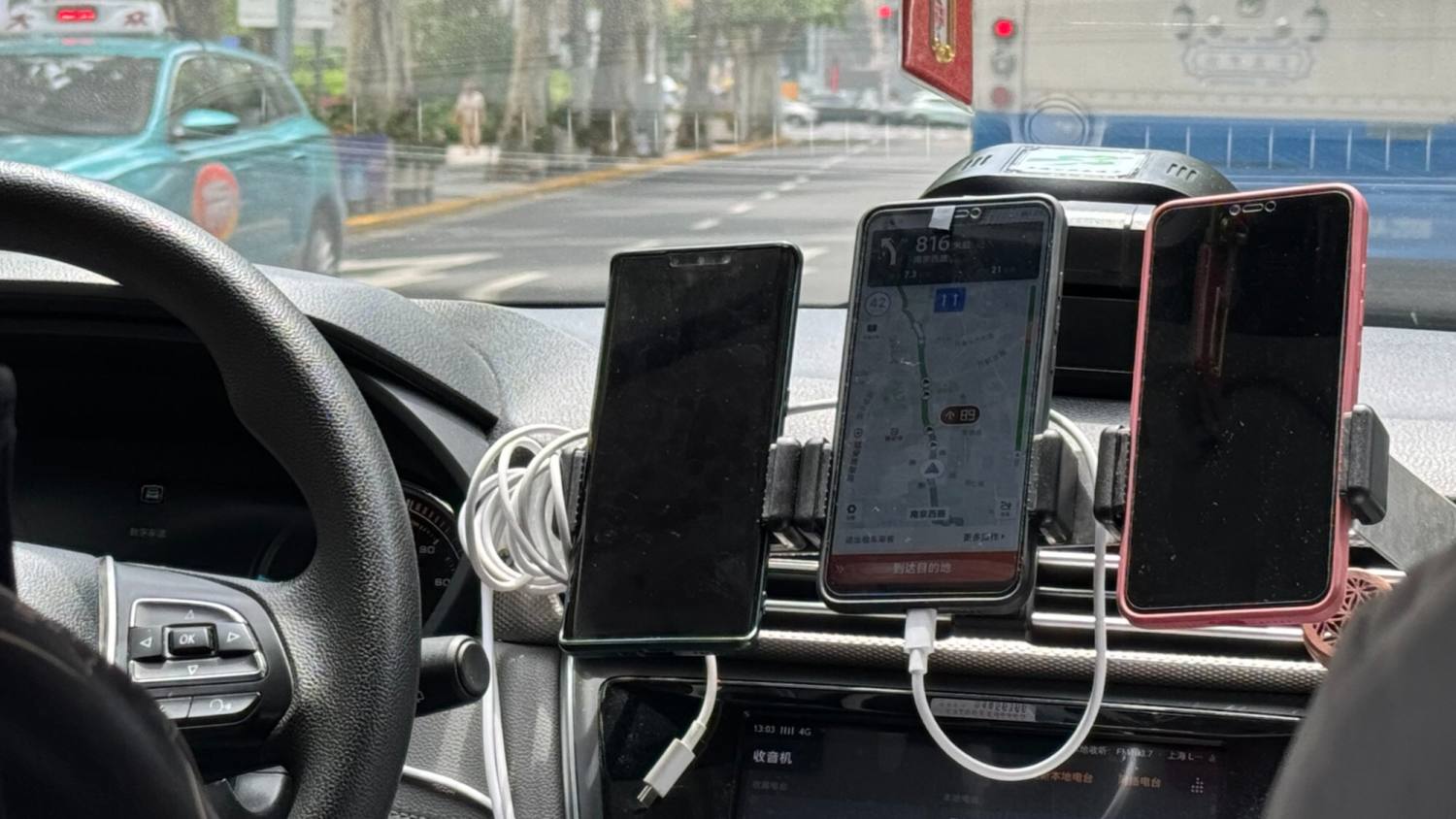"Informed AI News" is an publications aggregation platform, ensuring you only gain the most valuable information, to eliminate information asymmetry and break through the limits of information cocoons. Find out more >>
China's Taxi Drivers Navigate Technological Disruption
- summary
- score

SHANGHAI — China's taxi drivers are grappling with intense competition from ride-hailing apps, autonomous vehicles, and even flying cars. Didi, the leading platform, holds a commanding 70% market share. The number of ride-hailing licenses issued has surged to over 7.1 million, doubling within just three years.
Drivers such as Xu rely on multiple smartphones to juggle various apps. Smartphones are crucial for securing customers. Xu operates WeChat on one device and Didi on three others.
While ride-hailing services provide flexibility, they also heighten competition. Drivers are drawn to cities with higher fare rates, like Shanghai. Zhang, a Didi driver, now works longer hours compared to when he first started.
The market is becoming saturated in certain regions. Authorities in cities like Chongqing, Suzhou, and Jingdezhen are cautioning prospective drivers about the risks of over-competition. Average daily earnings for drivers in Guangzhou have fallen by 12% compared to the previous year.
Robotaxis, which have been in testing since 2019, present a significant challenge to human drivers. Baidu's Level 4 autonomous taxis function without any human oversight. The emergence of flying taxis, such as AutoFlight's recent demonstration, introduces yet another competitive element.
Drivers contend that human presence provides essential security and interaction. Amidst ongoing technological advancements, the future of driving jobs remains uncertain.
| Scores | Value | Explanation |
|---|---|---|
| Objectivity | 6 | Comprehensive reporting with in-depth analysis. |
| Social Impact | 4 | Strong social discussion, influencing some public opinion. |
| Credibility | 5 | Solid evidence from authoritative sources. |
| Potential | 5 | Very high potential to trigger larger events. |
| Practicality | 4 | Highly practical, applicable to real problems. |
| Entertainment Value | 3 | Some entertainment value, attracts a portion of the audience. |